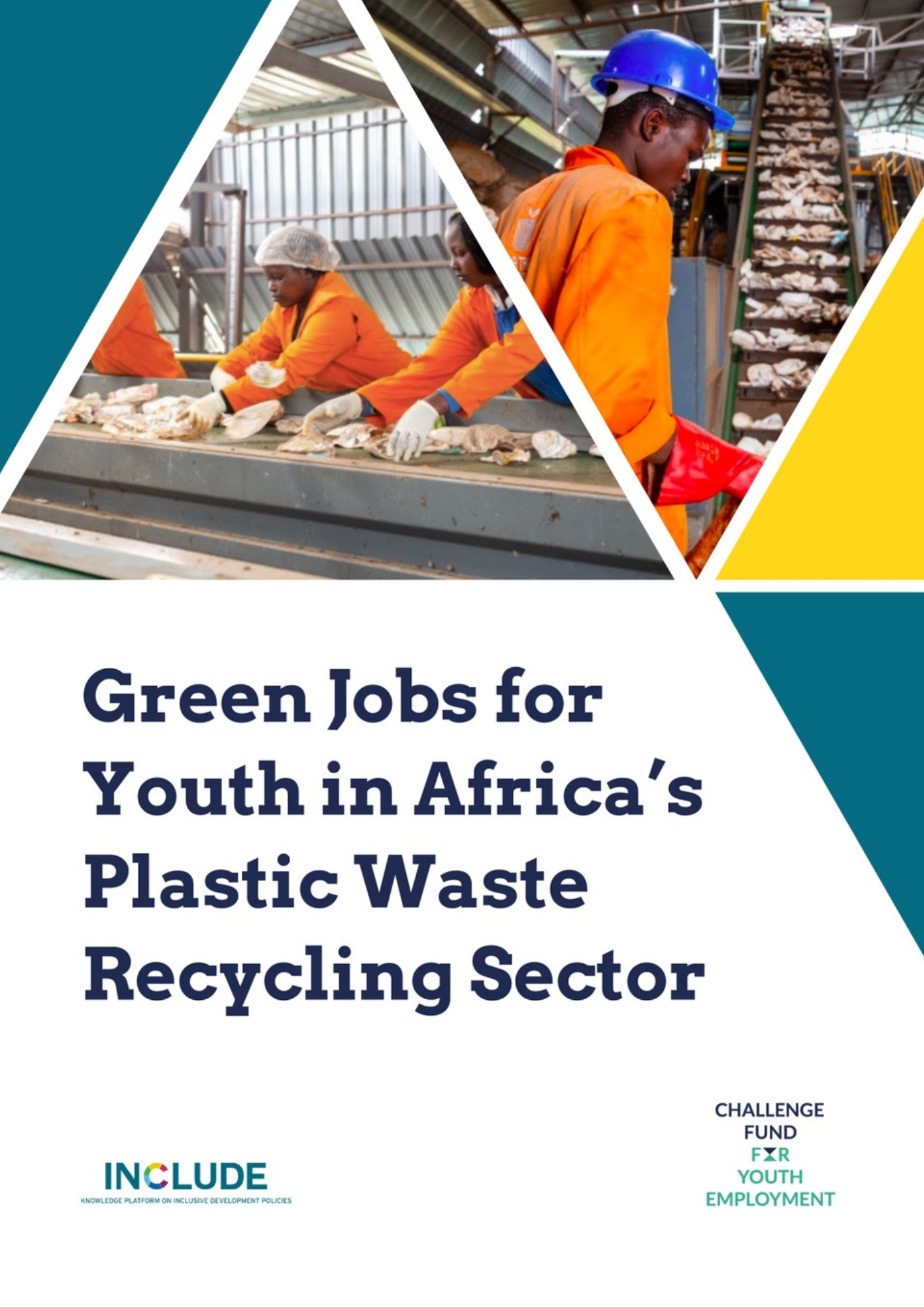The collaborative research partnership between the INCLUDE Knowledge Platform and the Challenge Fund for Youth Employment (CFYE) seeks to answer the question: What are the promising pathways for green jobs for youth in Africa’s Waste Recycling Sector?
Starting this endeavor with a literature review, this report describes the multifaceted barriers and drivers to green job creation. Africa’s waste recycling sector deals with weak support structures for scaling innovative recycling initiatives and the enduring social stigma and discrimination against waste pickers, significantly hindering their job decency and economic prospects. Encouragingly, waste pickers are increasingly acknowledged for their invaluable role in mitigating waste pollution while also securing economic livelihoods. The rising awareness of waste recycling’s potential is furthermore fostering a more supportive environment, marked by promising policies and collaborative partnerships.
The primary research focus comprised two case studies examining pioneering social recycling enterprises within the CFYE portfolio in Kenya— Mr. Green Africa and TakaTaka Solutions. These case studies facilitated the identification of effective strategies employed by innovative recyclers to surmount barriers and create green jobs for youth in plastic waste recycling. To bolster and confirm these findings, the research team conducted a validation session with CFYE’s Country Leads and Implementing Partners across Africa, broadening the insights beyond the Kenyan context.
The case studies presented an opportunity to bridge another knowledge gap. While existing research rightfully acknowledges the pivotal role of waste pickers and thoroughly examines the economic prospects and working conditions within the informal waste sector, it does not fully highlight the array of potential job opportunities for youth across the plastic waste recycling value chain. This report shines a light on opportunities in waste recycling beyond the informal sector, ranging from roles in waste collection to skilled positions within manufacturing industries. It underscores the untapped potential for green jobs, calling for deeper exploration in research and programming efforts to harness these promising avenues.
In conclusion, this research unveils four promising and interconnected pathways essential for fostering green jobs for youth within Africa’s Plastic Waste Recycling Sector. Green Finance, Green Innovation, Green Awareness, and Green Sector Alignment stand as pivotal avenues identified in this study. The report provides in-depth insights into these pathways and offers corresponding recommendations tailored for policymakers and practitioners. This is captured in 5 key messages for the promotion of green jobs for youth in Africa’s waste recycling sector.
